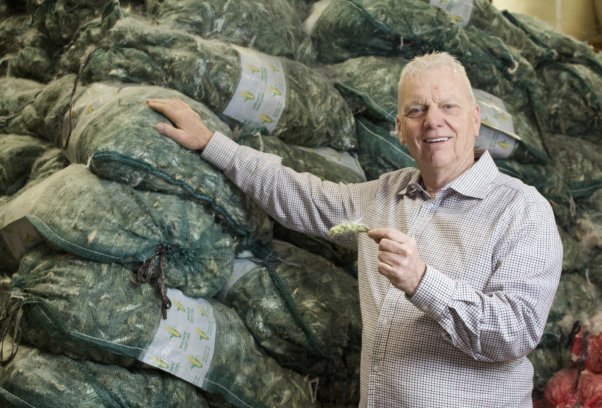
Exploiting the benefits of milkweed
Once considered a weed, the plant is now being reassessed in Canada.

19th April 2021
Innovation in Textiles
|
Cowansville, QC, Canada
Vegeto, a new apparel insulation developed by Eko-Terre, of Cowansville, Quebec in Canada, is based on tubular milkweed fibres blended with PLA and has proved to be three times more effective than polyester insulation.
Founded in 2018, Eko-Terre is dedicated to the design and manufacture of textile products from plant fibres, with its two main areas of focus being the processing of hemp and milkweed.
Once considered a weed, milkweed, which is ubiquitous in North America environment, has until recently been underestimated in its potential to contribute to the Canada’s economy.
It is now seen as a raw material with numerous virtues, including that of promoting the flourishing of pollinators, most notably the monarch butterfly. The vegetal silk obtained from its fruit meanwhile allows the manufacture of a whole range of products whose ecological value is in no way a compromise to performance.
Eko-Terre has chosen to start its plant transformation programme with a garment insulation.
“The milkweed fibre is designed by nature to carry the plant’s seeds to the wind and its lightness and insulating properties are due to its tubular structure, which makes it an excellent substitute to down,” said Ghyslain Bouchard, general director of Eko-Terre’s Milkweed Division.
The insulation is, of course, completely bio-based and in thermal imaging tests carried out by a team of scientists at the CTT Group in Quebec, has been shown to maintain three times the heat of a polyester insulation when subjected to pressure.
The method employed was to lay the insulation on a hot plate. The insulation was covered with a thin piece of black plastic on which two 2kg weights were placed, producing a pressure of 400 Pa on the insulation. The time required for to reach a temperature of 33°C was 2.2 minutes for the polyester and 6.5 minutes for Vegeto.
“These results show that the lower thermal conductivity of Vegeto insulation produces a better insulation factor because of the air trapped in the lumens,” the scientists concluded in their test report. “The heat passes through the polyester insulation more quickly than Vegeto, confirming the thermos effect of the plant-based tubular fibres.”

Business intelligence for the fibre, textiles and apparel industries: technologies, innovations, markets, investments, trade policy, sourcing, strategy...
Find out more